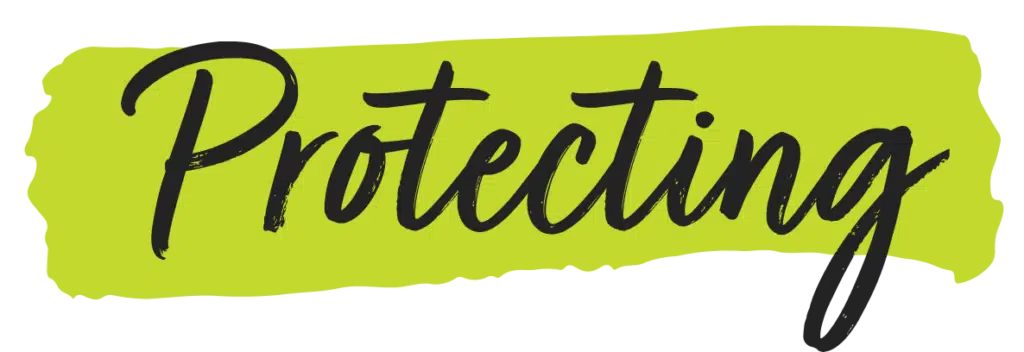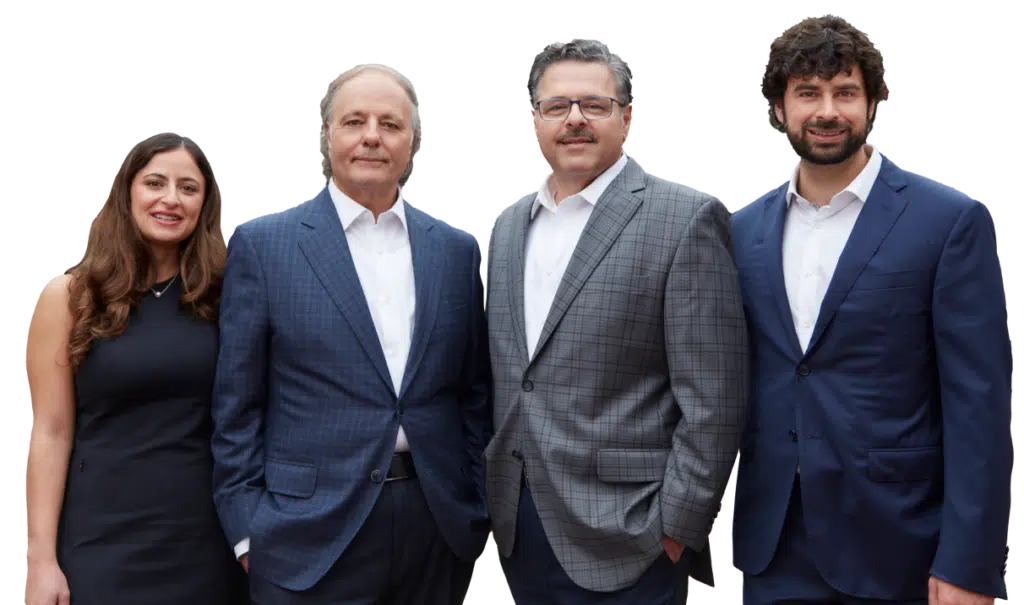Jacksonville Brain Injury Lawyer
Home » Jacksonville Personal Injury Lawyers » Jacksonville Brain Injury Lawyer
Approximately 5.3 million Americans live with permanently disabling brain injuries, according to the Center for Disease Control and Prevention, and 2.8 million sustain new traumatic brain injuries every year. Brain injuries can affect every aspect of your life, including your cognitive skills, mobility, and even your personality. The most severe brain injuries are often fatal.
We are a Jacksonville personal injury law firm with homegrown roots, and we take pride in helping Jacksonville brain injury survivors and their families when they need us most. Contact us today to schedule your free case evaluation.
How Our Jacksonville Brain Injury Attorneys Can Help With Your Brain Injury Claim
We are a family-centered brain injury law firm in Jacksonville dedicated to putting clients first. We have seen the devastating toll a brain injury can have on an individual and the family, and you can count on our attorneys to fight for you to recover the maximum award available.
Our experienced Florida traumatic brain injury attorneys know what it takes to protect your rights. We have recovered over $2 billion for injured accident victims, and our results are no accident. We care about our clients, which drives us to always do our best. Caring, understanding, and hard work are how we win.
You can count on us to fight for the compensation you deserve by doing the following:
- Deal with the insurance company.
- Investigate your accident to discover how it occurred and who is to blame.
- Gather evidence to prove the negligent party’s fault.
- Negotiate a settlement and refuse to accept less than you deserve.
- Fight for you in court if the insurance company won’t pay fair compensation.
- Keep you informed about your case until it is resolved.
With our Jacksonville brain damage lawyers on your side, you can focus on your medical recovery with full confidence that your claim is in the capable hands of experienced attorneys who care about your outcome. We offer a free, confidential consultation, and you pay nothing unless we win. Call us now at (904) 549-6434.
free case review
Determining Liability for Traumatic Brain Injuries
Anyone who causes or contributes to a brain injury through negligent, careless, reckless, or intentional misconduct may be liable. To establish liability, you must be able to prove that all of the following elements of negligence were present when you were injured:
- The at-fault party owed you a duty of care.
- The party breached the duty of care.
- You sustained a brain injury that you would not have suffered were it not for the breach of duty.
- The breach of duty is the actual and proximate cause of your injuries.
The parties responsible for your brain injury will depend on the type of accident that caused them.
Motor Vehicle Accidents
Florida is a no-fault state, so if you sustain a brain injury in a motor vehicle accident, your Personal Injury Protection, or PIP, coverage will be your first form of coverage regardless of fault. However, if your brain injury is severe, you will likely meet Florida’s criteria for severe injuries, allowing you to file a claim against the other driver. Other liable parties in a motor vehicle accident may include the following:
- Manufacturers of defective vehicle parts (i.e. seat belts that have caused injury)
- Government entities that fail to maintain safe roadways
- Vehicle owners
- Employers
- Large trucking companies
- Business owners with unsafe parking lots
- Negligent mechanics
Accidents on Public or Private Property
A property owner may be liable if a hazardous condition on the premises injures you. You must prove the owner should have known about the hazard and removed it. Negligent property owners may be liable for injuries from slips and falls, falling objects, swimming pool accidents, negligent security, and more.
Medical Malpractice
If you suffer a brain injury from medical malpractice, you can hold any health care provider who caused or contributed to the harm liable. Responsible parties may include the following:
- Doctors
- Nurses
- Anesthesiologists
- Pathologists
- Radiologists
- Pharmacists
- Midwives
- Hospitals
- Nursing homes
- Birthing centers
To prove negligence in a medical malpractice claim, you must establish that you suffered a brain injury because the health care provider failed to comply with the reasonable standard of care.
Workplace Accidents
If you sustained a brain injury at work, you may qualify for workers’ compensation benefits. If so, you cannot sue the employer. However, you can sue third parties who caused or contributed to your accident, such as manufacturers of defective products and negligent property owners.
There are some exceptions that allow you to sue your employer by filing a civil lawsuit. This includes instances where your employer intentionally causes harm. Another is when workers’ compensation benefits are not available due to lack of insurance coverage.
Damages Available to Traumatic Brain Injury Victims
Compensation for a brain injury may be substantial if the injury is severe and will result in lifelong disabilities. You may recover the following economic and non-economic damages:
- Lost wages
- Loss of lifetime earnings
- Medical expenses
- Rehabilitation
- Therapy
- Loss of bodily functions
- Loss of enjoyment of life
- Loss of society
- Physical pain
- Emotional distress
- Any other financial or emotional losses
You may also qualify to recover punitive damages if you present clear and convincing evidence of intentional misconduct or gross negligence.
Types of Brain Injuries
The two primary types of brain injuries are traumatic and non-traumatic. A traumatic brain injury stems from external forces, such as a blow to the head. Non-traumatic brain injuries occur when internal events, such as lack of oxygen, cause brain damage. Non-traumatic brain injuries are also known as acquired brain injuries.
Penetrating and Non-Penetrating Traumatic Brain Injuries
A penetrating traumatic brain injury occurs when an object makes contact with brain matter, such as a bullet, sharp object, or skull fragment. Also known as a closed injury, a non-penetrating brain injury occurs when you sustain a blow to the head or another force that doesn’t penetrate the skull.
Penetrating injuries are almost always severe, but non-penetrating injuries are classified as mild, moderate, or severe.
Mild, Moderate, and Severe Traumatic Brain Injuries
Mild traumatic brain injuries are also known as concussions. Although they are considered mild, this doesn’t mean they’re not serious. While most concussions resolve within two weeks without complications, some people experience effects for months.
Moderate and severe traumatic brain injuries cause damage to the structure of the brain and can lead to lifelong health problems and disabilities. Fortunately, 80 percent of brain injuries are mild. The types of damage most commonly present in moderate and severe traumatic brain injuries are:
- Extra-axial hematoma involves bleeding between the brain and skull. Depending on the location of the bleed, such an injury may be categorized as an epidural hematoma, subarachnoid hemorrhage, or subdural hematoma.
- Coup contrecoup injuries involve bruising on the brain at the site of impact and on the opposite side. These injuries most commonly result from rapid acceleration and deceleration forces that cause the brain to bounce back and forth.
- Diffuse axonal injury is the shearing, stretching, or twisting of the neuronal axons in the brain, resulting in a disruption of communication between the brain cells. Rotational forces or a sudden stop usually cause these injuries.
Bleeding can cause brain swelling and permanent damage, and it can be fatal. Seek medical attention immediately if you have any symptoms after a blow or jolt to the head. With prompt intervention, a medical team may be able to reduce the swelling and prevent further damage.
People with moderate and severe brain injuries often require lifelong medical care, and this can result in significant medical expenses and loss of earning capacity. Our Jacksonville brain damage lawyers will include all of your projected medical costs and your lifelong lost income when calculating your case value.
What Causes Brain Injuries?
The most common causes of non-traumatic brain injuries are medical malpractice and near drownings. Medical errors that may lead to brain injuries include the following:
- Medication errors
- Surgery and anesthesiology errors that deprive the brain of oxygen
- Birth injuries
- Errors during brain surgery
The most common causes of traumatic brain injuries are motor vehicle accidents, slip and falls, construction accidents, and sports accidents. According to the International Brain Injury Association, motor vehicle crashes cause approximately 50 percent of traumatic brain injuries and are the leading cause of brain injury in people under 65.
Slips and falls are the leading cause of traumatic brain injury in adults 65 and older. The CDC reports that older adults are more likely to be hospitalized or die from TBI compared to all other age groups.
Signs and Symptoms of Brain Injuries
If you experience any of the following symptoms after an accident, seek medical attention immediately:
- Headache
- Seizures
- Vision changes
- Uneven pupils
- Drainage of clear fluid from the nose or ears
- Nausea and vomiting
- Slurred speech
- Loss of balance or coordination
- Any loss of consciousness
- Difficulty awakening
- Sleep changes
- Mood changes
- Memory problems
- Dizziness
- Sensitivity to light
- Fatigue
The symptoms of concussion can mimic the symptoms of moderate and severe brain injuries, so you shouldn’t assume it is a concussion. If you delay treatment, you risk suffering permanent brain damage.
Long-Term Effects of Brain Injuries
Brain injuries can permanently impair thinking, memory, motor skills, vision, and emotional regulation. A study by the CDC found that 52 percent of brain injury victims experienced worsening symptoms or death within five years. They are significantly more likely to experience seizures, infections, and pneumonia. More than half are unable to maintain employment.

Is There a Time Limit on Filing a Brain Injury Claim in Jacksonville?
The Florida personal injury statute of limitations limits your time to file a Jacksonville traumatic brain injury lawsuit. In most cases, the time limit is two years after your accident.
However, this can vary based on the type of injury. In some instances, you can toll, or pause the statute of limitations if the plaintiff is under the age of 18 or mentally incapacitated. Speaking with an attorney as soon as possible after you’re injured is critical. If you miss the deadline, you’ll lose your chance to recover compensation. Don’t take any chances. Contact us today to talk to a knowledgeable Jacksonville TBI attorney.
Get a Free Consultation on Your Jacksonville Brain Injury Claim Today
Our compassionate Florida TBI attorneys in Jacksonville are ready to take on all aspects of your brain injury claim in Jacksonville and the surrounding areas. Call us today at (904) 549-6434 to schedule a free consultation. We are here for you and here for good.

How Our Jacksonville Brain Injury Attorneys Can Help With Your Brain Injury Claim
Determining Liability for Traumatic Brain Injuries
Damages Available to Traumatic Brain Injury Victims
Is There a Time Limit on Filing a Brain Injury Claim in Jacksonville?
Get a Free Consultation on Your Jacksonville Brain Injury Claim Today
free case review
Client Testimonials


YOU AND YOUR FAMILY










